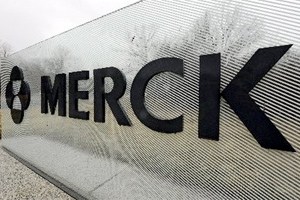
More than 80 per cent of advanced melanoma patients treated with Merck & Co’s anti-PD-1 therapy MK-3475 were still alive after one year, according to new clinical data.
The first survival data from Merck’s ongoing phase Ib trial of MK-3475 reinforce earlier results which showed that the immunotherapy achieved an overall response rate of 38 per cent, rising to 52 per cent at the highest dose tested (10mg/kg every two weeks).
Researchers presented the new findings at the International Congress of the Society for Melanoma Research in Philadelphia this week, revealing that after another five months of follow-up the overall response rate had increased to 41 per cent, with 88 per cent of patients with partial or complete responses showing no evidence of disease progression.
“Our data make us hopeful that this novel investigational therapy could potentially provide meaningful benefits to patients suffering from this malignant disease,” commented Merck’s head of R&D Roger Perlmutter.
MK-3475 was awarded breakthrough status by the FDA in April and is thought to work by prompting the patient’s own immune system to mount a T cell-mediated immune response against melanoma by stripping away a mask adopted by the tumour cells to help them evade detection.
It is currently in a phase II study versus traditional chemotherapy in patients who have progressed after prior therapy, as well as a phase III trial comparing it with Bristol-Myers Squibb’s (BMS) CTLA-4 inhibitor Yervoy (ipilimumab), which is establishing itself as the second-line therapy of choice in advanced melanoma.
Merck is vying with other drugmakers to bring the first anti-PD-1 therapy to market, notably BMS whose nivolumab candidate is in phase III; Roche which has MPDL3280A in phase II; and AstraZeneca, which has the anti-PD-1 drug AMP-514 in early-stage testing.
Analysts estimate that nivolumab will reach market first with peak sales of around $1bn, while MK-3475 is expected to launch a little later with sales in the order of $500m a year.
In addition to melanoma, the anti-PD-1 receptor class have shown promise in non-small cell lung cancer (NSCLC) and kidney cancer. Perlmutter said earlier this year that Merck had also started testing its candidate in patients with hormone receptor negative breast cancer, neuroepithelial tumours, head and neck cancer, and colorectal cancer.
The company said it also plans to initiate combination trials this year and in early 2014 in melanoma and other cancers.




